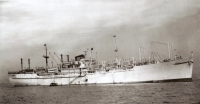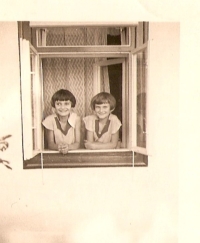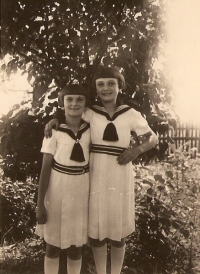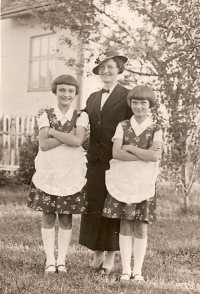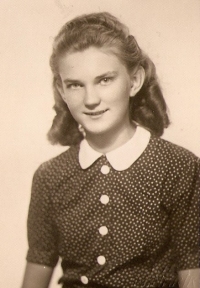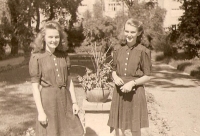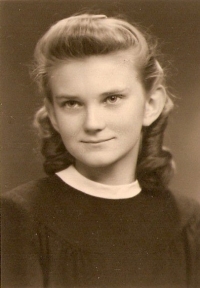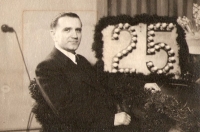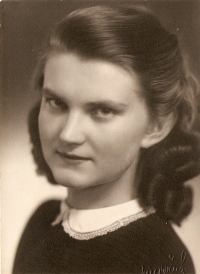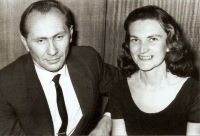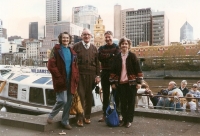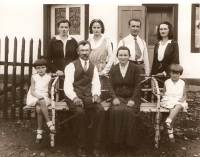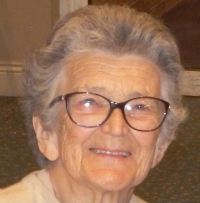When she was running away to Germany, she fell in a stream. She managed to escape the border guards.

Download image
Marta Sturt, née Winklerová, was born on the 14th of April in 1928 in Frýdlant nad Ostravicí. She and her sister Marie were raised by their grandparents, their father worked as an accountant in the Vítkovice iron works and he and their mother lived in Ostrava. When she was eleven, she started attending a school at the Congregation of Sister of St. Cyril and Methodius in the Masaryk neighbourhood inBrno. In 1939, the Germans took over their school. Marta witnessed air raids in Brno, she secretly transported flour bought at the black market, she saw the SS officers arrest people. Her cousin Pavel Tofel was a pilot at the RAF. After the war, she finished school and in 1948, she enrolled at the Institute for Modern Languages in Brno. A neighbour from the dormitory snitched on her that she listens to English radio. In October 1948, she crossed boundariesto Germany and she spent eight months in a refugee cam. In July 1949, she made a trip from Italy to Melbourne on The Nelly. She worked in Darwin and later, she settled in Melbourne. In1957, she married Miroslav Šťovíček and in the 1960‘s, they changed their surnames to Sturt. She had two sisters. Marta never saw her parents again and her sister Marie visited her in Australia only after 1989 [revolution]. In 2022, she lived in Melbourne.
